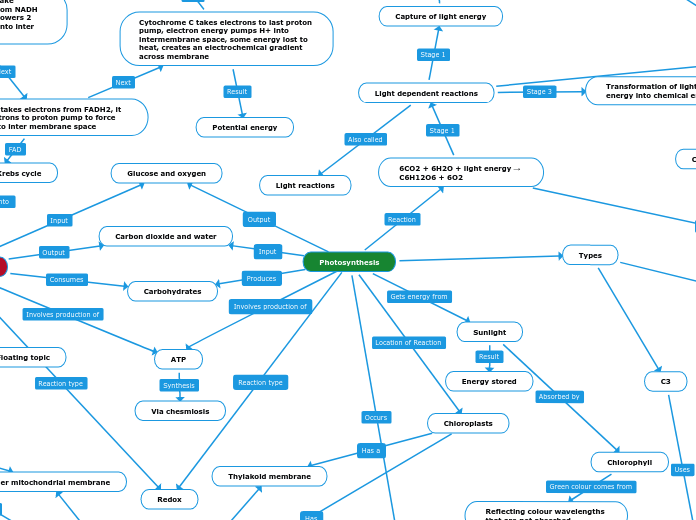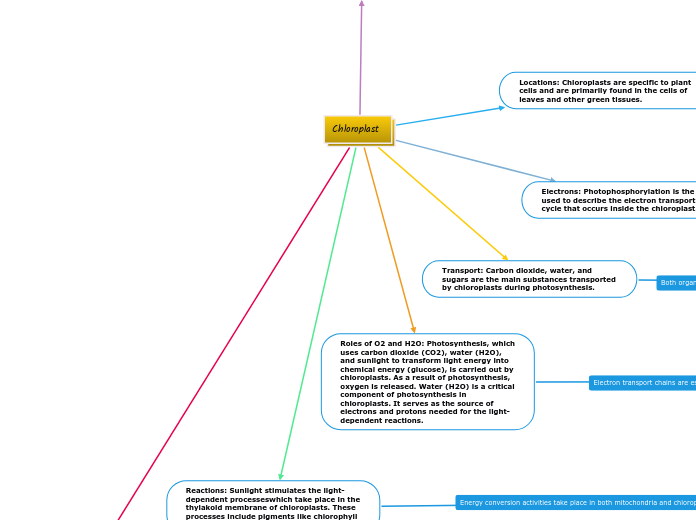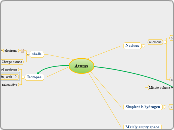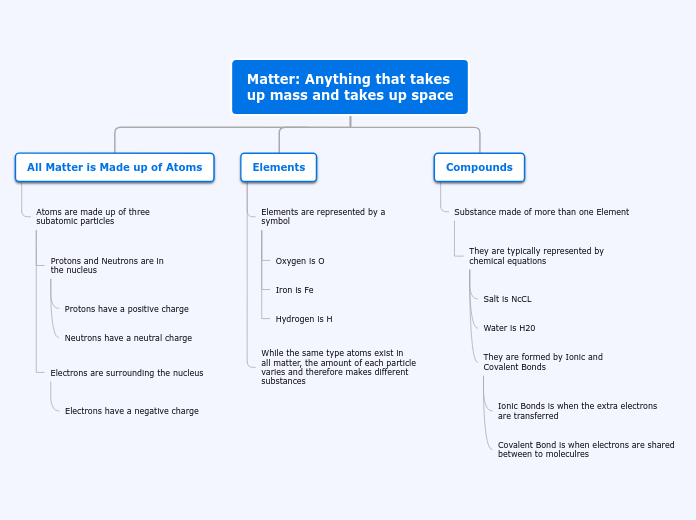Ions & Ion Formations
Polyatomic Ions
Made of more than one kind of atom. A package
where the entire package has a charge
and contain with oxygen.
Example:
(PO4)3-: 1 phosphorus, 4 oxygen, charge 3-
(OH)-: 1 oxygen, 1 hydrogen, charge 1-
(NO3)-: 1 nitrogen, 3 oxygen, charge 1-
IUPAC Naming Rules
IUPAC RULES- Polyatomic Ions
Examples:
Sulfur:
SO42- = sulfate ion
SO32-= Sulfite ion
Chlorine:
ClO2= Chlorite ion
ClO3 = chlorate ion
IUPAC RULES - Multivalent Ions
Roman Numeral Equivalents:
1= l
2=ll
3=lll
4=lV
5=V
Use Roman numerals in brackets to indicate which ion it is. NAME( element name) (Roman numerals) IONS(end it with ion)
For example:
Au+ = Gold (l) ion or Au3+= Gold (lll) ion
Sn2+= Tin (ll) ion or Sn4+= Tin (lV) ion
IUPAC RULES - Monoatomic Ions
Cation (+): Name of the element and add ion to the end.
For example :
Mg2+ = magnesium ion
Na+ = sodium ion
Be2+ = beryllium ion
Anion (-): Name of the element and change the suffix to
-ide and add ion to the end.
For example:
O2- = oxide ion
Cl- = chloride ion
F- = fluoride ion
Stands for INTERNATIONAL UNION OF
PURE AND APPLIED CHEMISTRY. Its how the
chemists name chemical compounds.
Ion Electron Configurations
It considers how many electrons were lost
or gained for the ion when writing the
configuration.
Examples:
Sodium:
Na: 1s(2)2s(2)2p(6)3s(1)=11e-
Na: 1s(2)2s(2)2p(6)=10e- ( lost 1e-)
Cation
A positively charged ion ( +) and
an atom that lost electrons.
Examples:
Mg2+
Al3+
Na+
( it always has a positive sign)
Multivalent Ions
These are elements that can make
more than one kind of ions.
Example:
Au+ or Au3+
Sn2+ or Sn4+
Fe2+ or Fe3+
Pb2+ or Pb4+
Monoatomic Ions
These are elements that form one kind of ion.
Examples:
Ca2+
Al3+
S2-
F-
Octet Rule
An atom that will gain or lose electrons
until they have achieved a shell with 8
electrons in total.
Video about Octet Rule
Anion
A negative charged ion (-) and
an atom that gains electrons.
an atom that
Examples:
O2-
Cl-
N3-
( it always have a negative sign)









